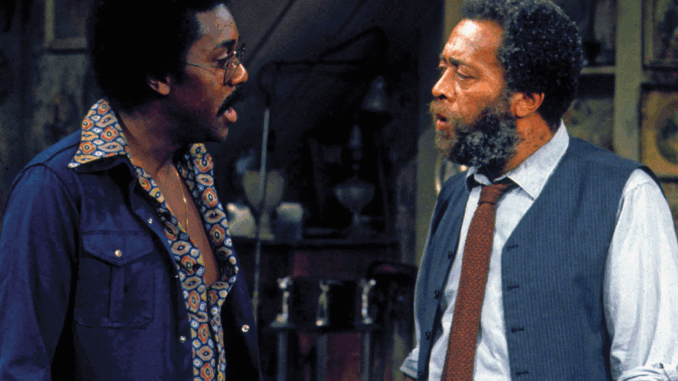
“Sanford and Son” pushed boundaries for its time, tackling race, class, and family dynamics with a groundbreaking blend of sharp humor and social commentary. Yet, for a show known for its edginess, one has to wonder: were there storylines, jokes, or character interactions that even the bold producers of “Sanford and Son” deemed too controversial, too incendiary, or simply “unairable” for 1970s television? The whispers of these “lost episodes” or unfilmed concepts offer a tantalizing glimpse into what might have been, and how far the show truly dared to go.
While specific “lost episode” scripts are rare to surface, interviews with writers and cast members over the years have hinted at ideas that were considered but ultimately shelved. Given the show’s focus on a Black family in Los Angeles, topics like police brutality, systemic racism, or deeper explorations of the Watts Riots’ legacy might have been discussed but deemed too heavy or potentially alienating for a broad sitcom audience. Fred’s occasional, casual racism towards other groups was already pushing limits; imagine if the show had directly confronted the racism he himself might have faced more profoundly.
Another area of potential “unairable” content could revolve around more explicit references to Fred’s past or Lamont’s love life. While the show often alluded to Fred’s colorful past or Lamont’s romantic misadventures, direct portrayals of certain situations or more risqué jokes might have crossed the line for network censors. The 70s were a time of evolving standards, but sitcoms still largely adhered to a family-friendly veneer, even when tackling mature themes.
The genius of “Sanford and Son” was its ability to subtly embed social commentary within its humor. Rather than confront issues head-on with heavy-handed dialogue, it often used Fred’s prejudiced remarks, Lamont’s progressive ideals, and the daily struggles of a junk business to highlight societal inequities. Perhaps the “unairable” content wasn’t just too offensive, but too direct, disrupting the delicate balance between comedy and social message that the show so masterfully achieved. These unspoken stories remind us that even groundbreaking shows had their limits, and the true daring often lay in what they managed to say, even when they couldn’t say everything.